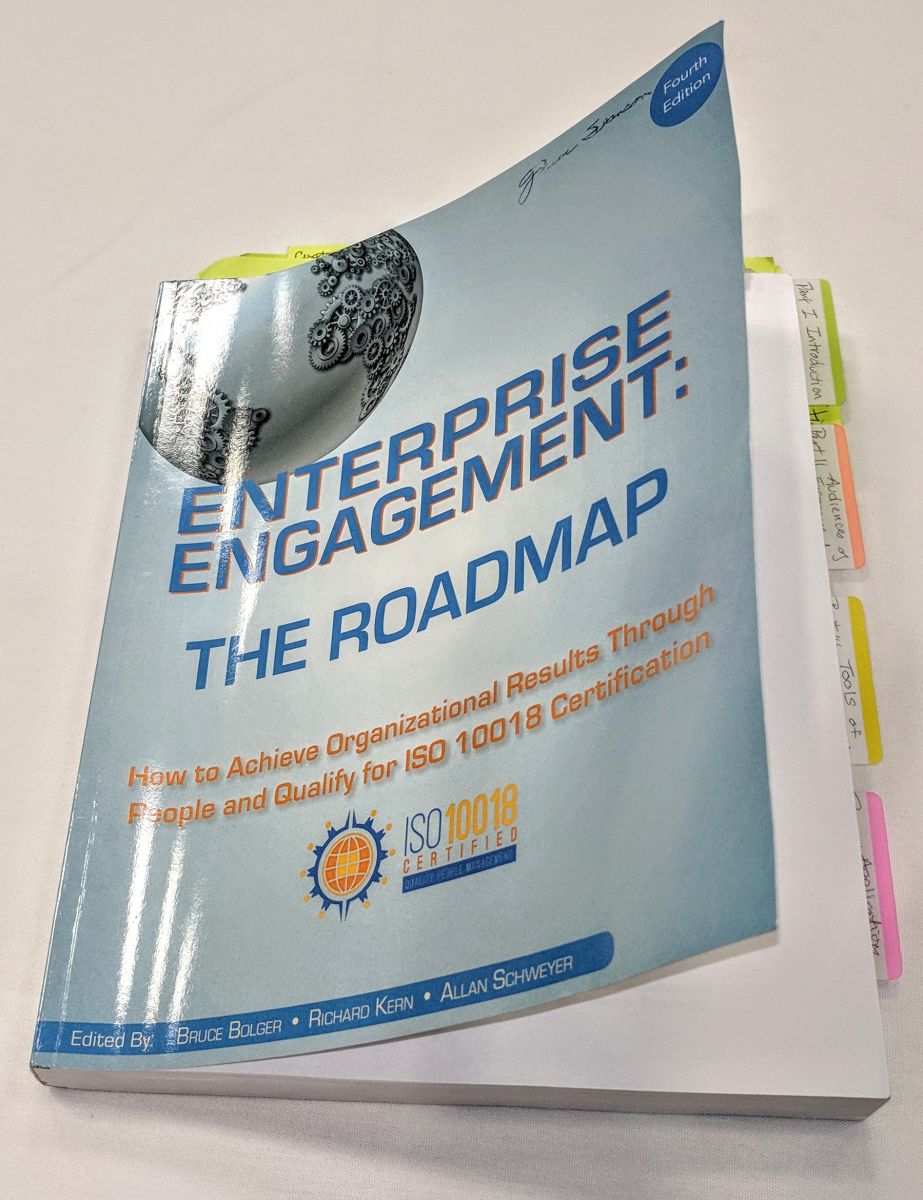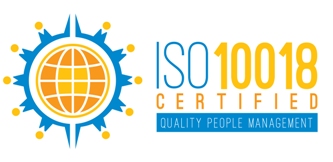News Analysis: Concept of Enterprise Engagement Enters Political Fray
A bill introduced by Senator Elizabeth Warren mandating top corporations to implement what ESM readers know as Enterprise Engagement throws a new unforeseen obstacle into the emergence of this field by potentially subjecting it to the polarizing influence of politics. See ESM: Sen. Elizabeth Warren Proposes Bill That Would Mandate Enterprise Engagement Practices at “Large Companies”
Just when we at the EEA had hunkered down for another several years of slow progress educating the C-suite on the multiple financial and experiential benefits of an enterprise approach to engagement, Elizabeth Warren, a likely presidential candidate, has introduced the concept on the center stage of partisan politics. Her new bill, The Accountable Capitalism Act, requires very large companies “to consider the interests of all corporate stakeholders, including employees, customers, and communities.” So far, she has accompanied her quest with strong language about the rich, when in fact these principles provide even greater returns for the wealthy based on the Engaged Company Stock Index at TheEEA.org and considerable other evidence.
The EEA is strictly non-partisan and believes that the economics and benefits of this approach to management are so compelling in terms of both short- and long-term profit performance and well-being for all that there should be no need for legislation. Any reader of ESM knows that this bill essentially mandates the principles espoused in the EEA’s Enterprise Engagement: The Roadmap that say the interests of all stakeholders contribute to the benefits of all and urge large companies to comply with fundamental principles focused on ensuring that all stakeholders benefit from organizational activities that are shared more equally, because investors and everyone, in turn, can make more money.
While the EEA certainly supports any effort to promote this concept, the bill raises two important questions:
1. Is This “déjà vu All Over Again?”
Our corporate leaders in the 19th and 20th centuries so abused workers and customers that they forced upon themselves labor and consumer protection laws that should never have been necessary. In a world based on common sense, organizations should self-regulate based on principles that provide enhanced prosperity for all. Do we need government to mandate obvious business principles to address the dismal fact that customer and employee engagement and experiences are so low most people suffer from "Sunday evening blues," or that most customers and employees have little loyalty to all but a few organizations? ISO standards already provide a voluntary means for companies to demonstrate their commitment to the interests of all stakeholders and provide consumers and investors a transparent way to judge for themselves if a company truly is genuine in its commitment to success through people.
If this bill passes, it will be yet another example of business bringing upon itself regulations that could be implemented by the free market the same way quality management and 59 other ISO standards are managed based on organizations working together. Many industries use standards that enable different organizations to align effective practices or calibrations, and ISO Annex SL and ISO 10018 quality people management standards enable people and organizations to judge for themselves if they are good to work for, do business with, or invest in. A Social and Human Capital Coalition has already been formed by 200 leading companies who seek to voluntarily comply with standardized disclosures related to human capital investments and outcomes, and multiple organizations worldwide are dedicated to promoting such disclosures. The Securities & Exchange Commission is currently considering a proposal to require the disclosure of human capital investments and outcomes in the same way that public companies must disclosure expenditures in research and development.
There is ample proof that shareholders benefit from Enterprise Engagement principles and that such investments provide a more reliable return-on-investment than stock buybacks. One might ask why common-sense principles should have to be mandated by government when there are now ISO certifications and standards that clearly address most of the issues addressed in the Warren bill, and when investors have so clearly identified the importance of this management approach for organizational success. If Americans support Warren’s concept in enough numbers, and it becomes law, businesses will have only themselves to blame by failing to use voluntary mechanisms already in place to self-regulate on common-sense principles with benefits for everyone.
2. The Risk of Entering the Political Fray
The EEA is non-partisan because Enterprise Engagement principles are critical to the success of any organization and have nothing to do with politics but are rather common-sense principles. See Special Report: What Our Nation’s Party System Tells Us About the Dangers of Office Politics. Any good idea that becomes caught up in party politics gets chewed up by partisan warfare, which is why the EEA is non-partisan. There is no reason to polarize people in arguing for this bill when all people can profit from this strategic approach to business proven to provide better return to shareholders and society.
It is not the role of the EEA to determine whether government should require Enterprise Engagement principles of large companies or not; that’s for the democratic process to determine. Whether or not there's a consensus to require companies to comply with these principles is up to the general public. If Elizabeth Warren seeks to win this battle, we believe she would do better to eliminate the "class warfare" approach because Enterprise Engagement principles benefit everyone.
Master the Principles of Enterprise Engagement to Achieve Organizational Goals and Enhance Your Career
- Profit from a new systematic approach to engagement to enhance your organization’s brand equity; increase sales, productivity, quality, innovation, and safety, and reduce risks.
- Achieve ISO 10018 Quality People Management Certification to demonstrate your organization’s strategic commitment to people to your customers, employees, distribution partners, vendors, communities, investors, and regulators.
Live Education: Enterprise Engagement in Action Conference at Engagement World, April 3, 2019, in San Francisco, in conjunction with the Selling Power Sales 3.0 Conference. Learn about the economics, framework, and implementation process for an ISO certifiable approach to achieving organizational objectives by strategically fostering the proactive involvement of all stakeholders. Learn more and register now. 

In Print: Enterprise Engagement: The Roadmap 4th Edition, How to Achieve Organizational Results Through People and Quality for ISO 10018 Certification.
The first and most comprehensive book on Enterprise Engagement and the new ISO 9001 and ISO 10018 quality people management standards.
Online: The Enterprise Engagement Academy at EEA.tmlu.org, providing the only formal training on Enterprise Engagement and the new ISO 9001 and ISO 10018 quality people management standards. Provides preparation for professionals to support organizations seeking ISO 10018 employer or solution provider certification, as well as elective courses on Trade Show Engagement, Rewards and Recognition, Government, and other topics.
Plus: 10-minute short course: click here for a 10-minute introduction to Enterprise Engagement and ISO standards on Coggno.com.
 Services: The International Center for Enterprise Engagement at TheICEE.org, offering: ISO 10018 certification for employers, solution providers, and Enterprise Engagement technology platforms; Human Resources and Human Capital audits for organizations seeking to benchmark their practices and related Advisory services for the hospitality field.
Services: The International Center for Enterprise Engagement at TheICEE.org, offering: ISO 10018 certification for employers, solution providers, and Enterprise Engagement technology platforms; Human Resources and Human Capital audits for organizations seeking to benchmark their practices and related Advisory services for the hospitality field.
The Engagement Agency at EngagementAgency.net, offering: complete support services for employers, solution providers, and technology firms seeking to profit from formal engagement practices for themselves or their clients, including Brand and Capability audits for solution providers to make sure their products and services are up to date.
C-Suite Advisory Service—Education of boards, investors, and C-suite executives on the economics, framework, and implementation processes of Enterprise Engagement.
Speakers Bureau—Select the right speaker on any aspect of engagement for your next event.
Mergers and Acquisitions. The Engagement Agency’s Mergers and Acquisition group is aware of multiple companies seeking to purchase firms in the engagement field. Contact Michael Mazer in confidence if your company is potentially for sale at 303-320-3777.
Mergers and Acquisitions. The Engagement Agency’s Mergers and Acquisition group is aware of multiple companies seeking to purchase firms in the engagement field. Contact Michael Mazer in confidence if your company is potentially for sale at 303-320-3777.
Enterprise Engagement Benchmark Tools: The Enterprise Engagement Alliance offers three tools to help organizations profit from Engagement. Click here to access the tools.
• ROI of Engagement Calculator. Use this tool to determine the potential return-on-investment of an engagement strategy.
• EE Benchmark Indicator. Confidentially benchmark your organization’s Enterprise Engagement practices against organizations and best practices.
• Compare Your Company’s Level of Engagement. Quickly compare your organization’s level of engagement to those of others based on the same criteria as the EEA’s Engaged Company Stock Index.
• Gauge Your Personal Level of Engagement. This survey, donated by Horsepower, enables individuals to gauge their own personal levels of engagement.
For more information, contact Bruce Bolger at Bolger@TheEEA.org, 914-591-7600, ext. 230.














